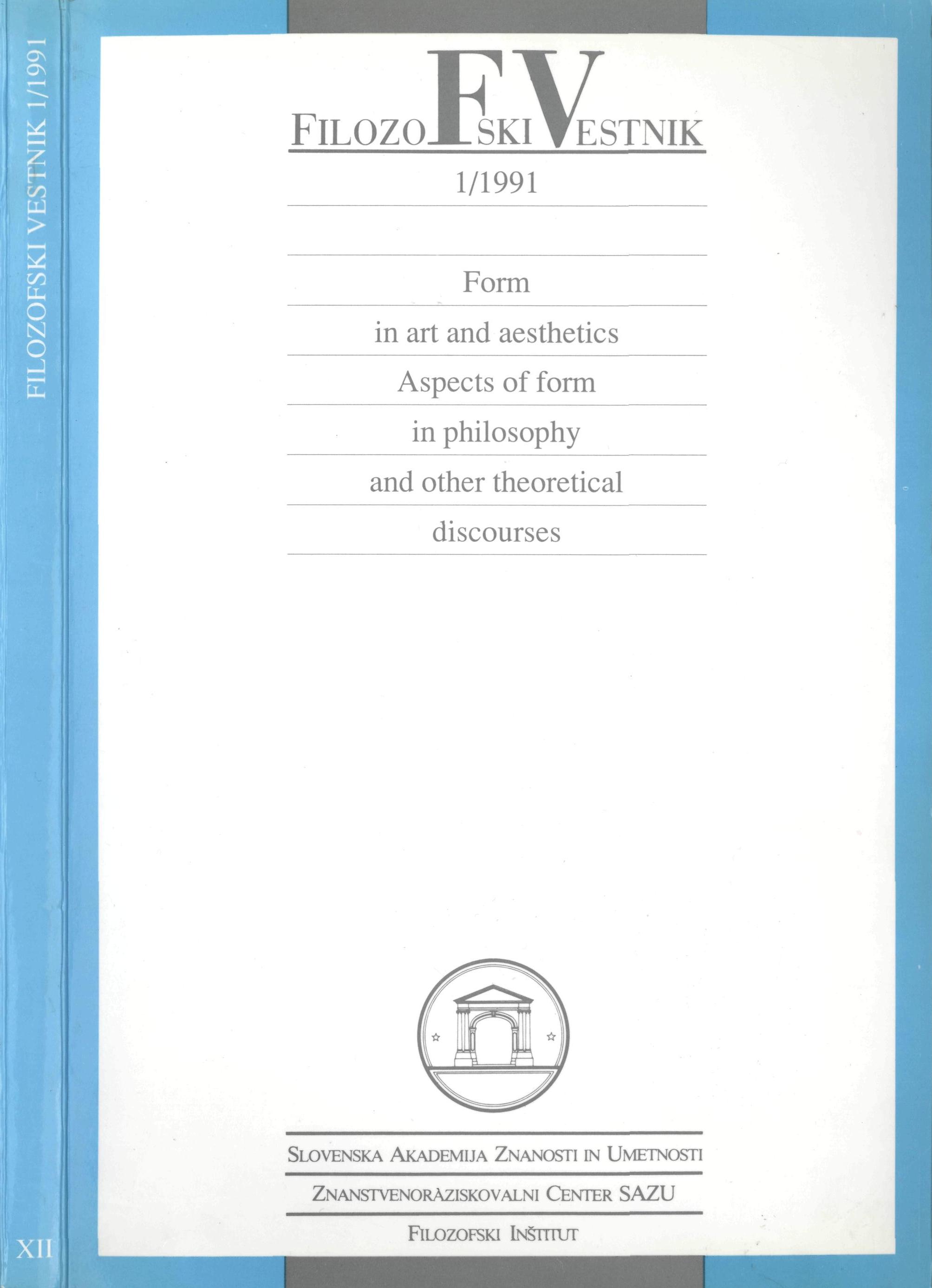Mitos kot način prisotnosti forme v pesniški umetnosti
Povzetek
R. Zimmermann je y,s\jpu Qeschicbte cjerestetik (1858) zapisal, da je »forma princip antične umetnosti«, medtem ko M. Fuhrmann začenja svojo interpretacijo Aristotelove teorije literature s stavkom: »Die aristotelische Poetik ist eine Gattungspoetik«. Izhodišče te razprave, v kateri bomo skušali pomiriti ti dve disparatni tezi, je razumevanje koncepta mimesis kot predstavljanje forme, občega, ideala (morphe, katholou) v njegovi lepoti in sublimnosti (epieikeia, paradeigma). Obče, univerzalno v besedni umetnosti pa je mitos, ki je po Aristotelovih besedah duša, tj. formalni in s tem notranji urejevalni princip umetniškega dela. Skozi teorijo ustvarjalnosti kot produkcije in oblikovanja dobi pojem forme nov pomen: forma pesniških zvrsti, ki jih obravnava Poetika, ni nič več transcendentna lepota kot ideja (Platon), temveč je forma zdaj notranja organizacija oz. struktura umetnine. Univerzalnost, občečloveška veljavnost pesniške reprezentacije se ustvari s pesniškimi postopki naracije. Ker je mitos pesniška reprezentacija človeške dejavnosti (praxis), ki je človekovo bistvo, ima vzpostavljanje pravil za kompozicijo zgodbe tudi svojo etično razsežnost. S teorijo mitosa pa Aristotelova filozofija umetnosti postane tudi teorija umetniške fikcije in umetniške iluzije kot modusa bivanja pesniške resnice.Prenosi
Podatki o prenosih še niso na voljo.
Objavljeno
2016-01-17
Kako citirati
Kalan, V. (2016). Mitos kot način prisotnosti forme v pesniški umetnosti. Filozofski Vestnik, 12(1). Pridobljeno od https://ojs.zrc-sazu.si/filozofski-vestnik/article/view/3774
Številka
Rubrike
Form in art and aesthetics
Licenca
Avtorji jamčijo, da je delo njihova avtorska stvaritev, da v njem niso kršene avtorske pravice tretjih oseb ali kake druge pravice. V primeru zahtevkov tretjih oseb se avtorji zavezujejo, da bodo varovali interese založnika ter da bodo povrnili morebitno škodo.
Podrobneje v rubriki: Prispevki





